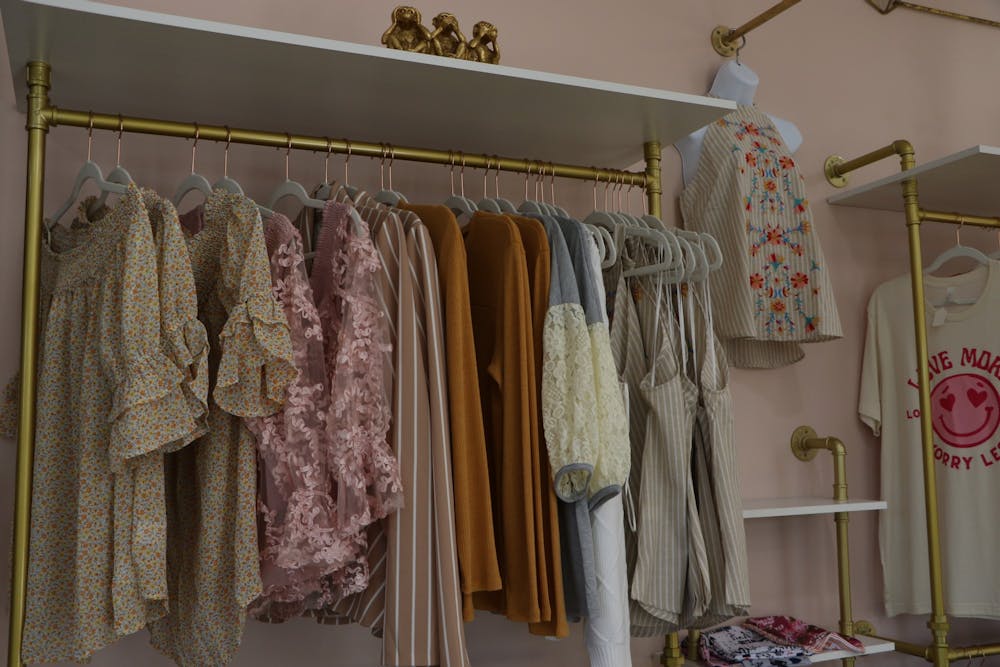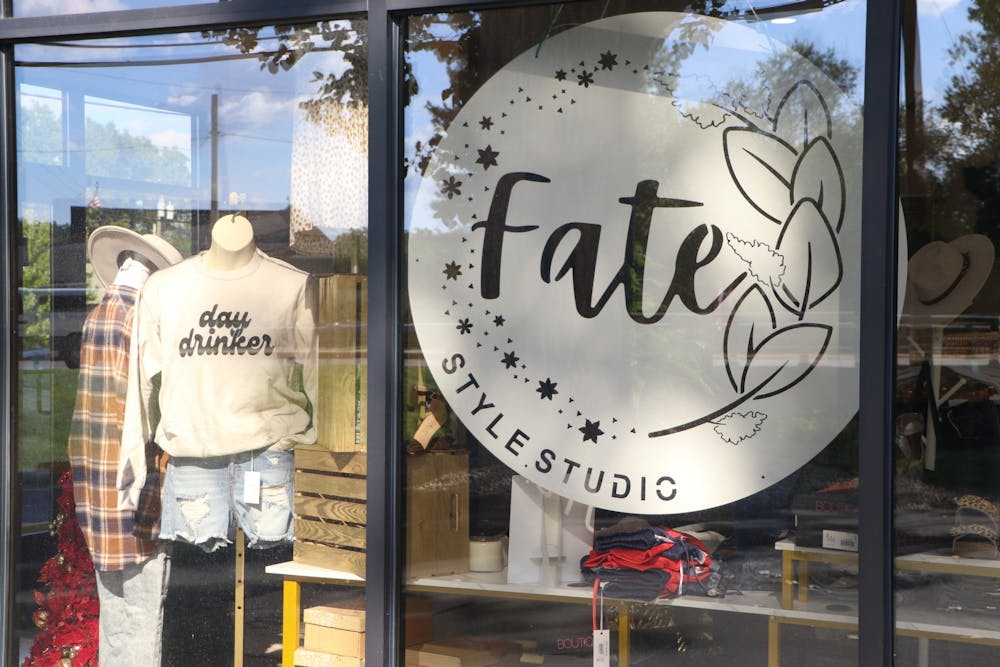Before the COVID-19 pandemic, Amber Greene was a field sales executive for a company that advertised beauty products in salons in Indiana, northeast Ohio and Illinois. However, when the first wave of the pandemic hit the U.S. in March 2020, Greene was out of work when the salons she worked for started shutting down.
Greene’s company promised her a position when businesses opened back up, but in August 2020, she was told that she wouldn’t be brought back. For the remainder of the year, she looked for another job in field sales.
She applied for a position in multiple companies, but none responded favorably. In fact, some companies rejected her application and resume so quickly that it was impossible to have reviewed it first, Greene said.
During this time, Greene noticed construction on 8919 W Adaline Street, tearing down walls and renovating a unit for sale. Frustrated with the job search and the digital filters, she made a steadfast resolution on New Year’s Day of 2021.
“I told my husband … ‘I’m not waiting,’” Greene said. “‘I want to find out who owns that building, and I’m going to put a store in there.’” In two days, she had a meeting with the owner of the building.
Then six months later in July 2021, Greene became the owner and manager of Fate Style Studio, a women’s clothing boutique in Yorktown.

A sign reading "Fate Made Me Do It" is lit behind the Fate Style Studio cash register taken Sept. 1, 2022. It is a creative rendering of a quip, when she or other women make the split decision to buy a piece of clothing that mesmerizes them, Amber said. Miguel Naranjo, DN
She is also the sole operator of the business, handling everything from managing finances to checking clients out at the cash register, said Chris Greene, her husband.
“I hung the shelves in her store, and that’s it,” he quipped.
The Greenes both said that opening a store in response to Amber’s job search troubles was a risky move, but Chris had faith in his wife and her ambitions.
“She’s a very driven person and works hard,” he said. “It’s likely worth the risk because she’s going to do everything she can do to make it work.”
When she was still in school, Amber said that there were plenty of stores for her to shop at, from big chains like JCPenney’s to small, local clothing stores. That variety doesn’t exist anymore, she said.
“If a high school girl or even someone my age wants to go buy a new outfit, our options compared to even just 10 years ago are a quarter of what they used to be,” she said.
Although her target demographic includes young women and middle-aged women, Fate Style Studio has garnered the attention of customers as young as 12 and as old as 90. She doesn’t carry clothes in kids sizes, but she never discourages her clients from trying on something they show interest in.
“Especially … older women will kind of back off and be like, ‘Oh, I’m too old for that [outfit].’ I think that’s garbage,” Amber said. “Wear what you want to wear.”
Amber also makes a point of carrying plus-size clothing. She said she often decides which products and brands to carry in her store based on the range of sizes the clothing comes in.

A clothing rack with tops for sale in various sizes taken Sept. 1, 2022. "I don't want to worry about the stupid pressure society puts on me to make sure I'm wearing clothes that are made for my body, you know what I mean?" said Amber Greene. Miguel Naranjo, DN.
She said she chose to open a boutique in particular because it was an example of a missing business that wasn’t giving Delaware County residents a chance to shop locally.
“By not providing that option to buy … an outfit or a pair of shoes or whatever here locally, we’re literally forcing that money outside of the community,” Amber said. “You can’t grow that way.”
Amber weighs many different factors in her business decisions, including the location of her store, the state of the economy at large and how she can advertise her business, she said. Although her position is difficult, she has every intention of growing the Fate Style Studio brand.
“When you own a business, you have to have an open mind and you have to be willing to look at all avenues,” Amber said. “I'm between a rock and a hard place, but I'm not a quitter either.”
According to the Delaware County website, Muncie’s economic backbone used to be industry and manufacturing, owed in great part to the large reservoir of natural gas in eastern Indiana that once powered them.
The Ball brothers constructed a factory in Muncie in 1880, taking advantage of the natural gas to produce glass. Indiana Steel and Wire, New Venture Gear (an automotive company) and Westinghouse Electric Corporation were examples of other companies that brought wealth to Delaware County.
In the 1970s, however, after the wells of natural gas ran dry, the factories couldn’t operate anymore and began shutting down en masse. In the decades succeeding, Delaware County lost thousands of job opportunities, marking the end of Muncie’s economic prosperity.
“Delaware County is in a rebuilding phase,” Amber said. “We’re still trying to figure out how to thrive without the factories that this community was built on.”
Contact Miguel Naranjo with comments at miguel.naranjo@bsu.edu or on Twitter @naranjo456.





